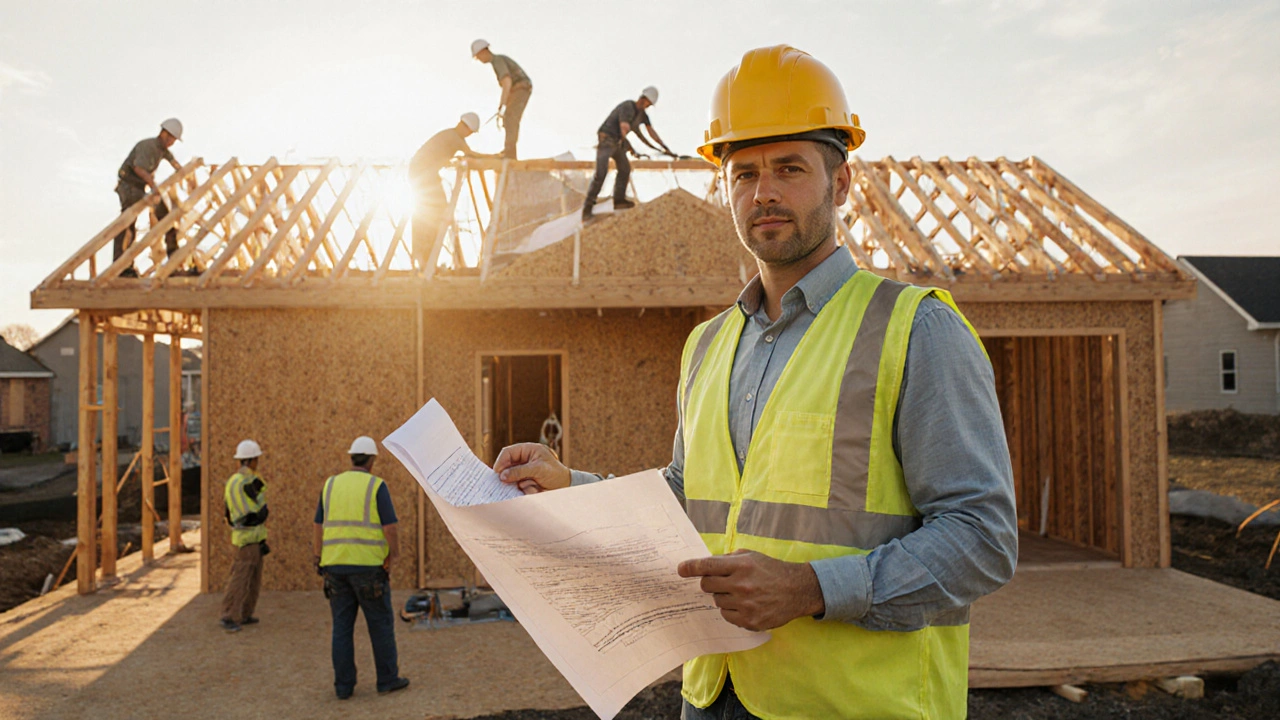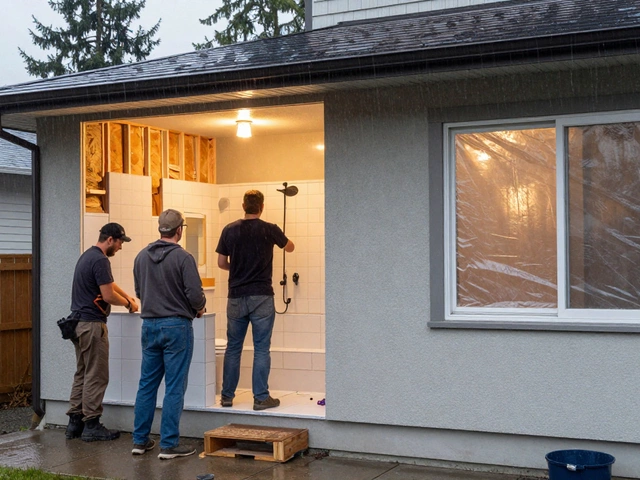Building Contractor Definition: What It Really Means and Who Does What
When you hear building contractor, a licensed professional who manages and carries out construction projects from start to finish. Also known as a general contractor, it’s the person you hire to coordinate everything from permits to plumbing, framing to finishes. It’s not just someone with a truck and a hammer. A true building contractor handles the whole job—hiring subcontractors, ordering materials, sticking to schedules, and making sure it all meets code. They don’t just build; they organize.
Many people mix up a builder, a tradesperson who focuses on physical construction tasks like framing or roofing with a construction company, a business entity that may employ multiple contractors and handle large-scale or multi-project work. But here’s the key: a builder might install your kitchen cabinets. A building contractor makes sure the cabinets are installed on time, the electrician doesn’t block the plumbing, and the inspector signs off before you move in. A construction company might run ten projects at once; a building contractor runs yours, end to end.
You’ll see this difference matter in posts about foundation cracks, loft conversions, or new build delays. If your foundation is bowing, you don’t just need someone to patch it—you need a contractor who understands structural load, drainage systems, and repair methods like carbon fiber straps or steel beams. If you’re planning a loft conversion, you need someone who knows planning permission rules, fire safety codes, and how to reinforce floors without turning your home into a construction zone for six months. These aren’t DIY fixes. They’re professional jobs.
And it’s not just about big projects. Even small repairs—like fixing a cracked wall after your house settles, or replacing flooring that’s buckling from moisture—require someone who knows what’s underneath. A good building contractor sees the whole picture: the drywall, the pipes, the insulation, the foundation. They don’t just fix what’s broken; they figure out why it broke in the first place.
That’s why you’ll find posts here about when to wait before decorating a new build, how much horizontal foundation cracks cost to fix, and why wallpaper lost its popularity. These aren’t random tips—they’re all connected to the same truth: home improvement isn’t about picking colors or buying tools. It’s about understanding systems, timelines, and who’s responsible for what. Whether you’re restoring an old table or remodeling a bathroom, knowing what a building contractor actually does helps you ask the right questions, avoid costly mistakes, and get real results.
Below, you’ll find real-world examples from homeowners who’ve been there—what went right, what went wrong, and how to make sure your project doesn’t end up as a nightmare story.
Why Is a Builder Called a Contractor? The Real Reason Behind the Term
A builder is called a contractor because they manage the entire project, sign legal contracts, and take responsibility for all work-not just build things. The term reflects accountability, not skill.
full article




